Presented by the African Development Bank (AfDB), the Food and Agriculture Organization of the UN (FAO), the Global Green Growth Institute (GGGI), the Islamic Development Bank and the NDC Partnership

Participants and panelists pose for a photo at the end of the event
This event, moderated by Davinah Milenge Uwella, AfDB, convened to discuss regional hubs in Africa, the Caribbean and the Pacific, which have been created to support developing countries implement and enhance their Nationally Determined Contributions (NDCs).
Speaking on the Africa NDC Hub, Amadou Hott, AfDB, noted initial concerns about individual countries implementing their NDCs without clear financial support, highlighting that this was the rationale behind engaging institutional partners to set up the African NDC Hub. He underlined the need for bankable projects for the private sector to finance, noting that the AfDB has been working with countries to train stakeholders on how to create these projects.
Mustapha Benjada, 4C Maroc, presented an overview of his organization, which is a center bringing together climate change stakeholders to:
- build capacity and share experiences;
- manage climate change knowledge on mitigation, adaptation and means of implementation;
- develop tools to inform decision makers; and
- replicate best practices across the continent.
Sara Guibunda, Mozambique, said that 80% of her country depends on smallholder agriculture, which makes food production vulnerable to climate change. She said that her country’s NDC has developed a roadmap to address climate change impacts in agriculture, which involves the ministries of environment, agriculture and finance.
Stressing that climate change actions deliver development benefits, Stephen King’uyu, Kenya, presented the country’s climate change action plan and finance policy, highlighting that, inter alia:
- the Plan is linked to both the 2030 Agenda for Sustainable Development and the Sendai Framework on Disaster Risk Reduction; and
- the revised Action Plan (2018-2022) was supported by the Africa NDC Hub, and included the views of the private sector, civil society and faith-based organizations.
Chris Bartlett, Vanuatu, stressed that the NDC is the single most important tool to address climate change in the Pacific. He noted that many of the first NDCs were focused on energy, and stressed that the Pacific NDC Hub will address all sectors.
Crispin d’Auvergne, Organisation of Eastern Caribbean States (OECS), spoke on accelerating NDC implementation through Caribbean climate leadership. He noted that the region’s first NDCs were rushed and based mostly on mitigation, but stating that the revised NDCs will be more robust, cross-sectoral and include adaptation. He highlighted the launch of the NDC Finance Initiative, which is a learning platform to support and enhance NDC implementation in the region.
Cameron Diver, Deputy Director General, Pacific Community, highlighted that one goal of the Pacific NDC Hub is placing the needs of the Pacific Island countries at the heart of the Hub. He said the Hub, once operational, will work on: developing NDC roadmaps; enhancing financing; mainstreaming NDCs into development plans; and sharing knowledge.
Jahan Chowdhury, NDC Partnership Support Unit, said that the project-specific perspective on the ground needs to adopte amulti-stakeholder, long-term programmatic approach. He also noted that the lack of engagement from finance and planning ministries in sustainable development will delay the mainstreaming of NDCs. He called for “synchronized dancing” between the public and private sectors in the implementation of NDCs.
Frank Rijsberman, Director General, GGGI, noted that before the Paris Agreement, GGGI was working to support countries in establishing national green growth strategies. He citied opportunities for regional development banks to assist in leveraging private sector and blended finance, and lauded the NDC hubs for promoting regional learning.
Ahmed Al Qabany, Islamic Development Bank, said that climate change is a strategic priority for the Bank, and underlined the importance of aligning voluntary national reviews (VNRs) related to implementation of the Sustainable Development Goals with NDCs to ensure countries are not replicating efforts.
Expressing interest in collaborating with the Caribbean and Pacific Hubs, Julia Wolf, FAO, highlighted the launch of the Thematic Working Group on Agriculture, Food Security and Land Use. She stressed the importance of engaging finance and planning ministries in the development and implementation of NDCs, but also hearing the needs of those in agriculture, food security and the private sector.
Veronica Jakarasi, Africa Group of Negotiators, called for the Hubs to help increase NDC ambition. She noted that countries need guidance to incorporate gender and human rights in their NDCs, but underlined that the guidance should not be too prescriptive. She said that if countries are using markets for NDC implementation, information is needed on how to best increase their bankability.
Wrapping up the session, Anthony Nyong, AfDB, drew attention to the Africa NDC Hub Roadmap, a three-year work programme to assist African countries to develop, enhance and implement their NDCs.
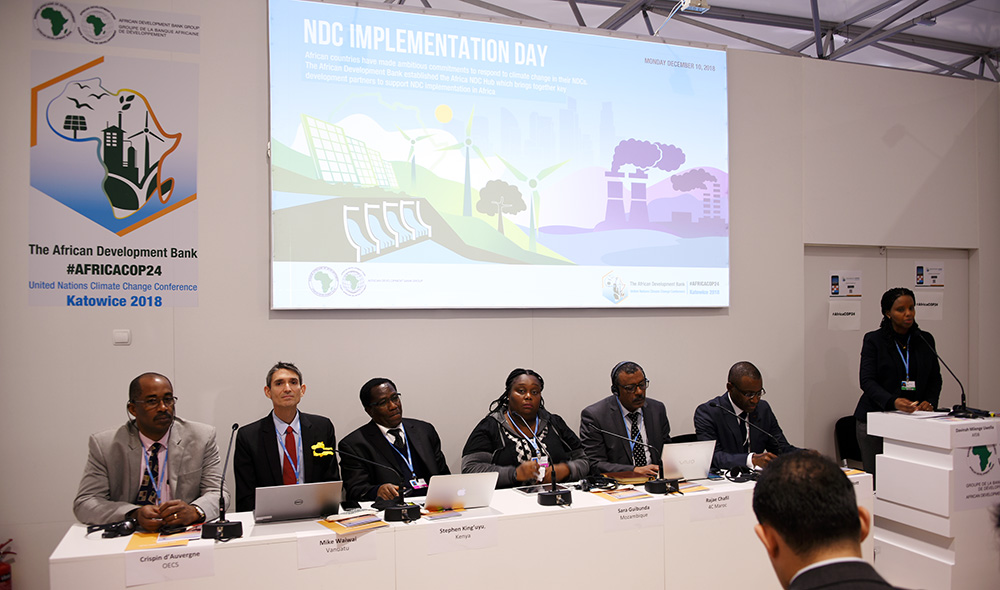
L-R: Crispin d’Auvergne, OECS; Chris Bartlett, Vanuatu; Stephen King’uyu, Kenya; Sara Guibunda, Mozambique; Mustapha Benjada, 4C Maroc; Amadou Hott, AfDB; and Davinah Milenge Uwella, AfDB

Davinah Milenge Uwella, AfDB
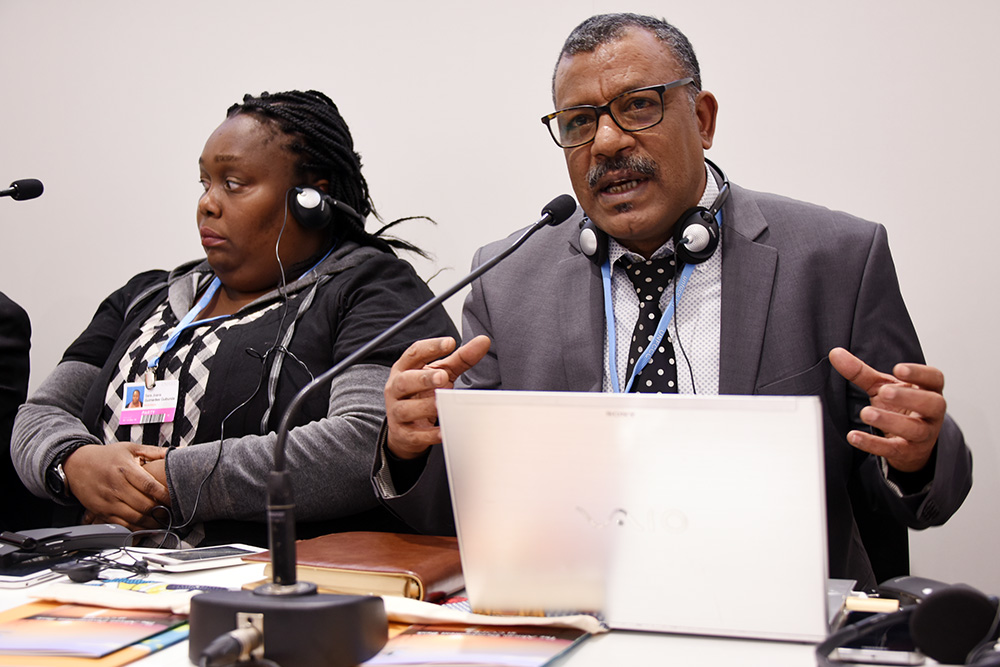
Mustapha Benjada, 4C Maroc
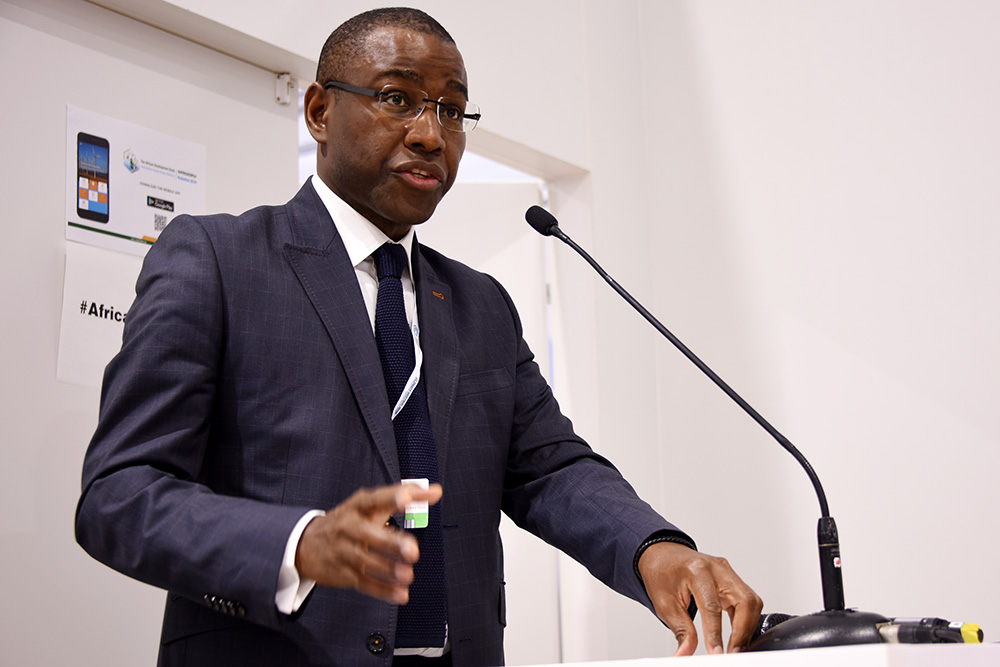
Amadou Hott, AfDB
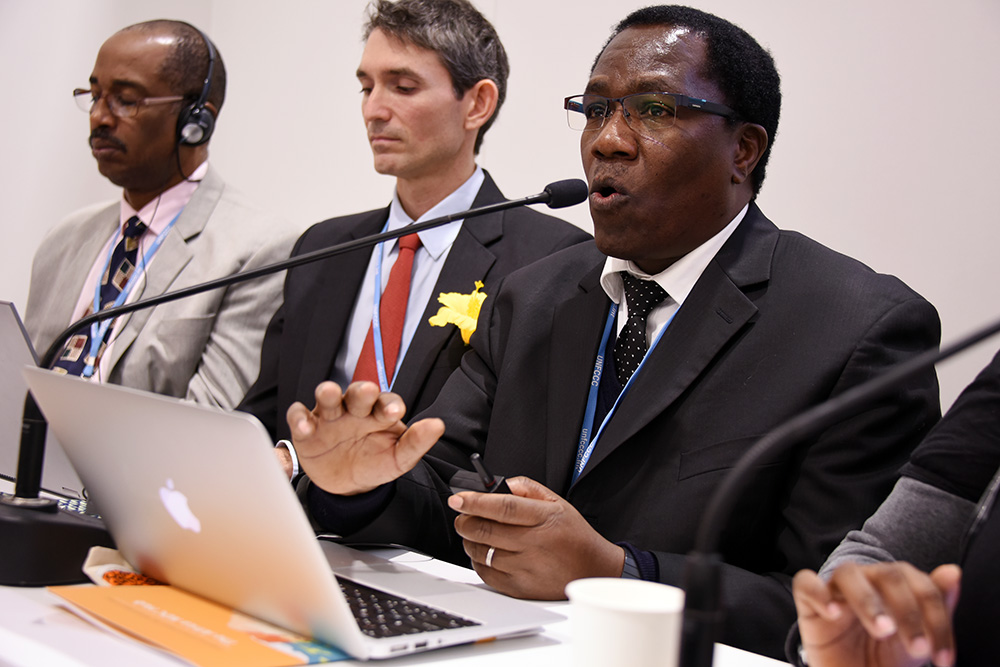
Stephen King’uyu, Kenya
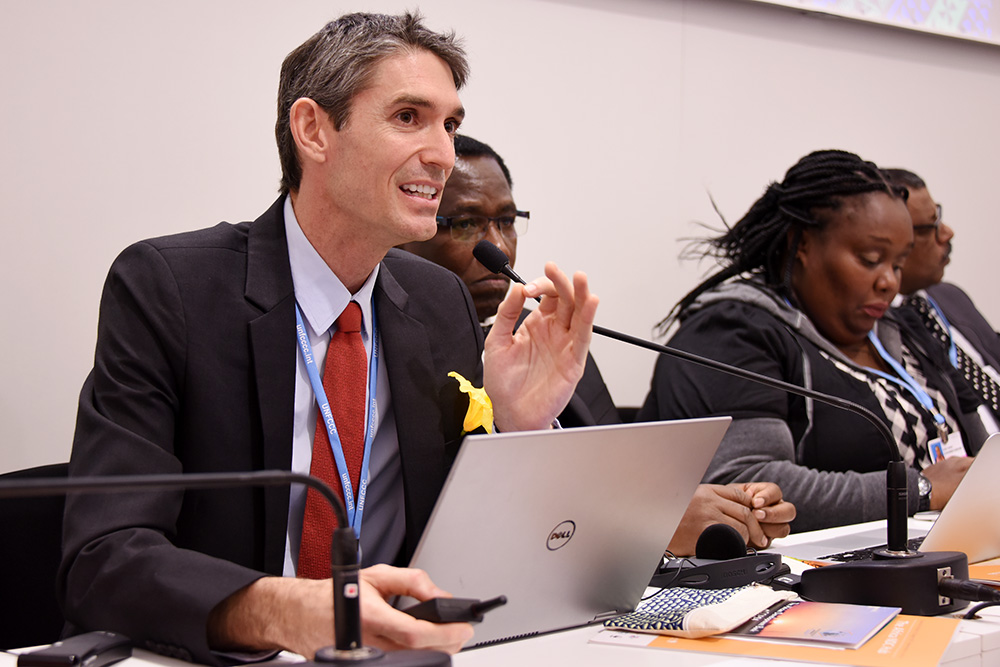
Chris Bartlett, Vanuatu
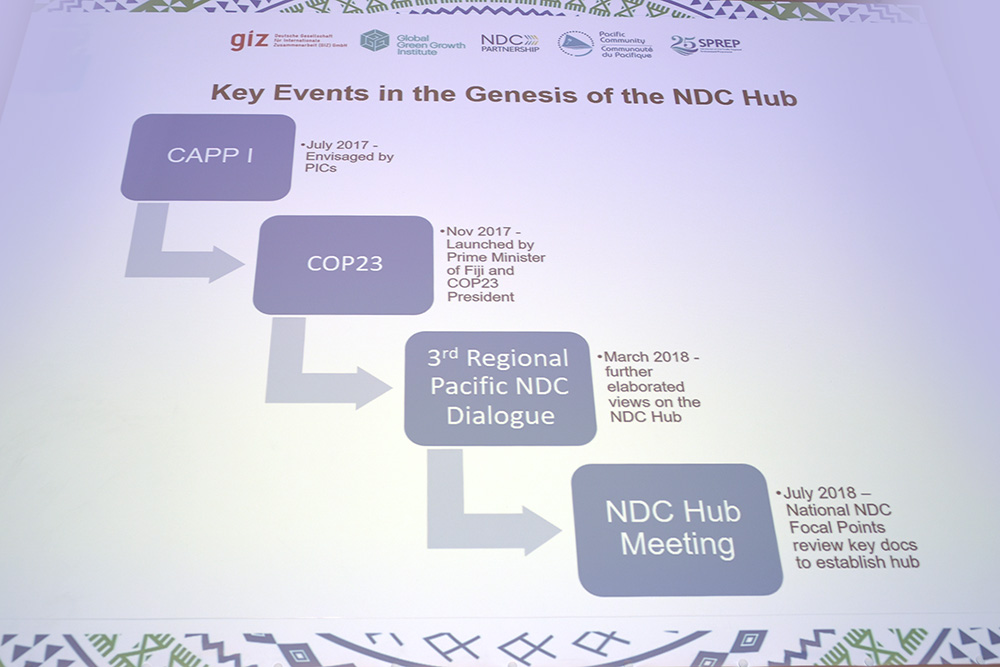
A slide from Chris Bartlett’s presentation
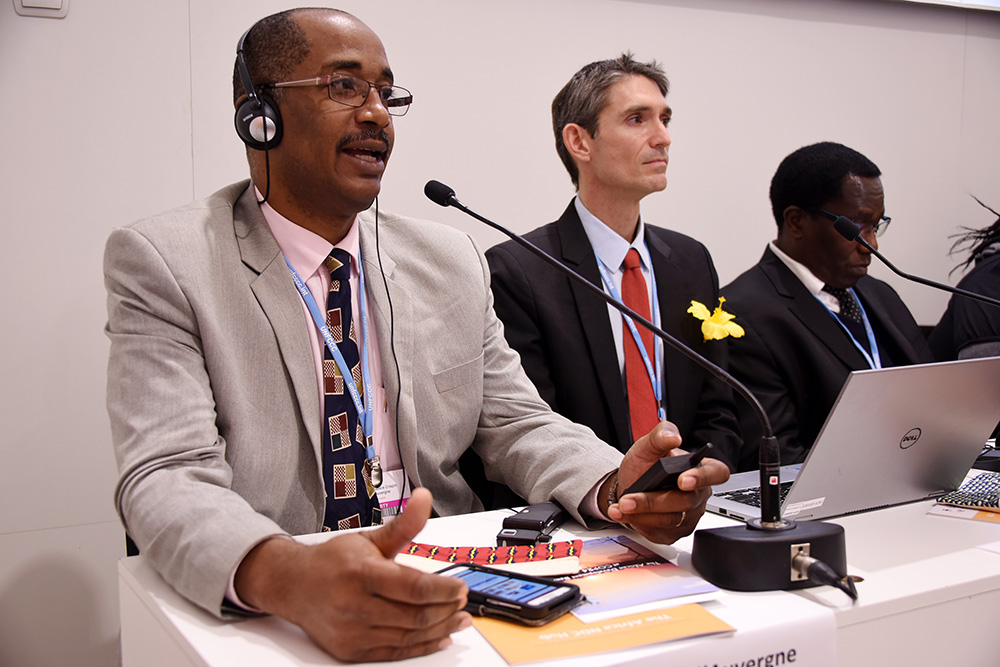
Crispin d’Auvergne, OECS
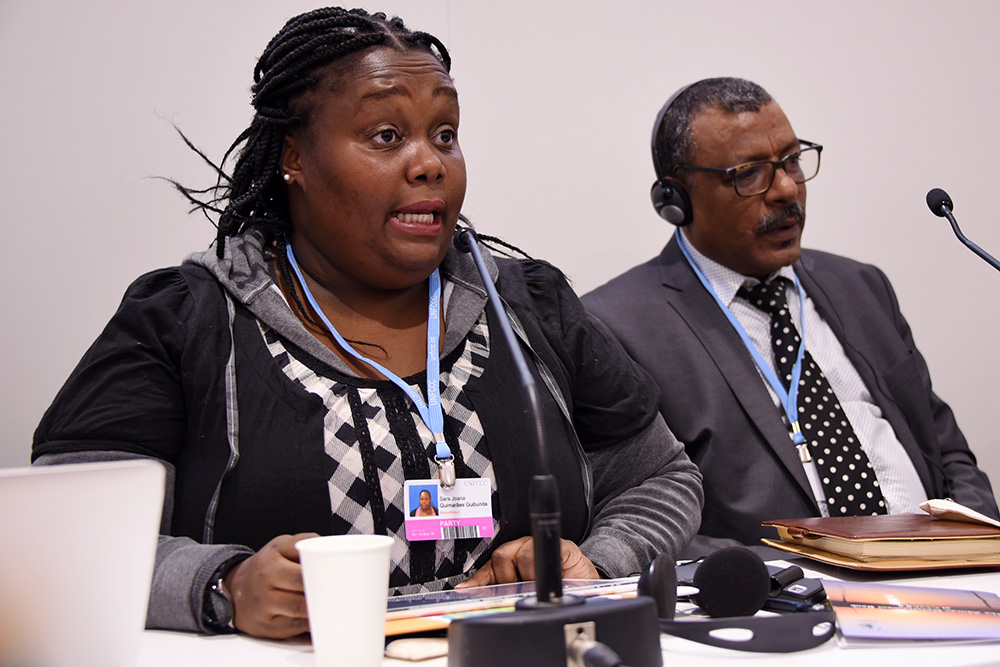
Sara Guibunda, Mozambique
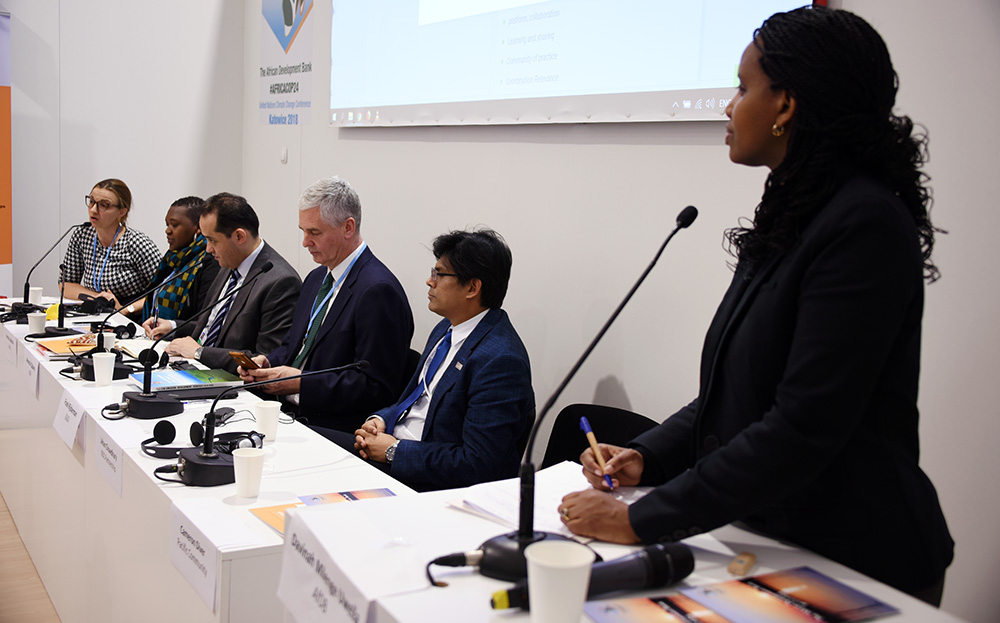
L-R: Julia Wolf, FAO; Veronica Jakarasi, Africa Group of Negotiators; Ahmed Al Qabany, Islamic Development Bank; Frank Rijsberman, Director General, GGGI; Jahan Chowdhury, NDC Partnership Support Unit; and Moderator Davinah Milenge Uwella, AfDB
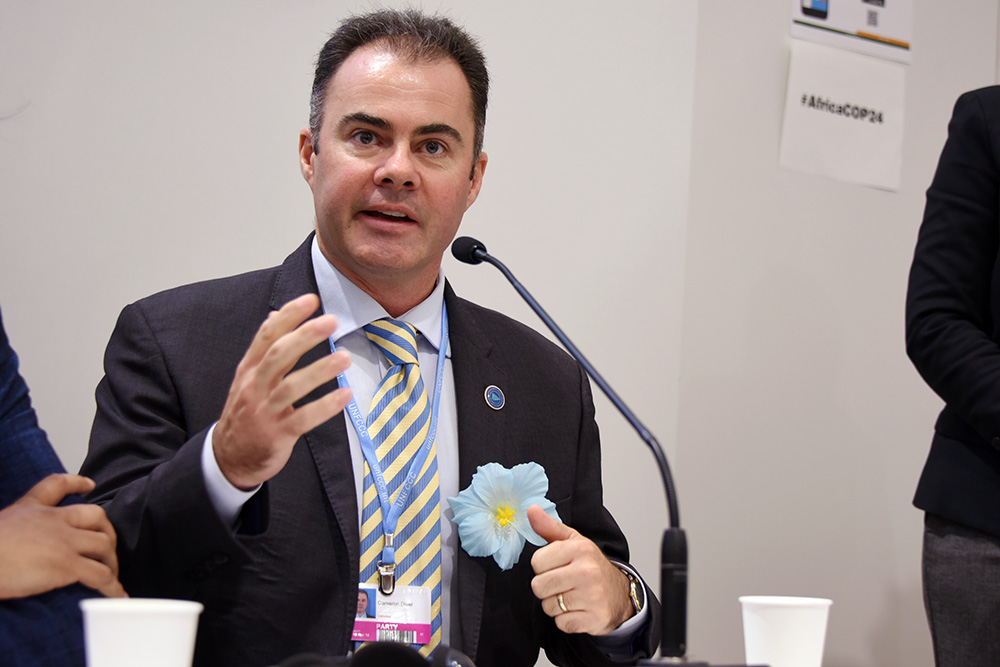
Cameron Diver, Deputy Director General, Pacific Community
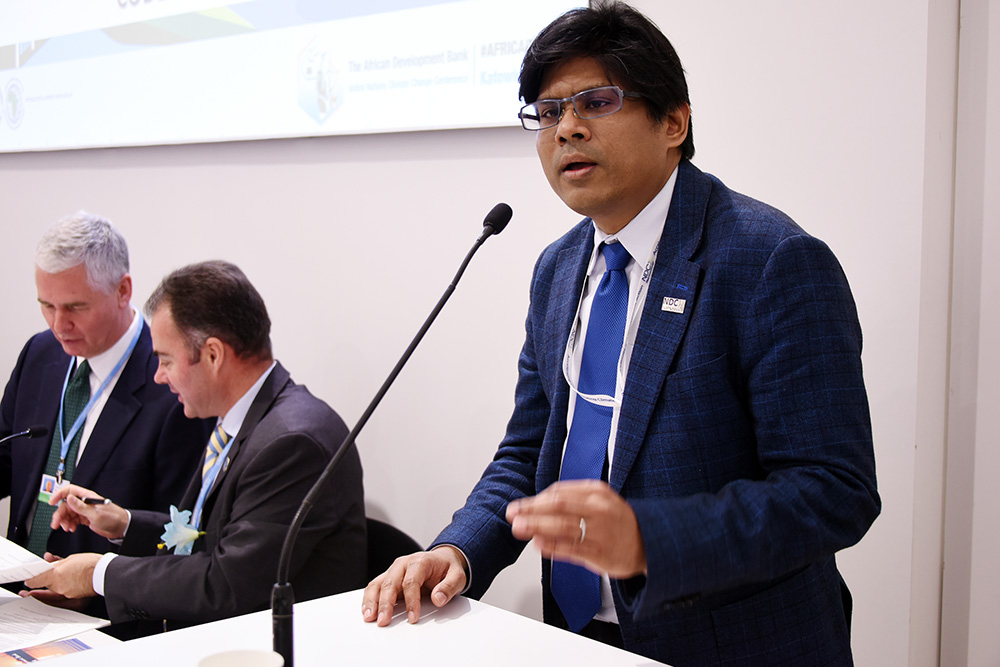
Jahan Chowdhury, NDC Partnership Support Unit

Frank Rijsberman, Director General, GGGI
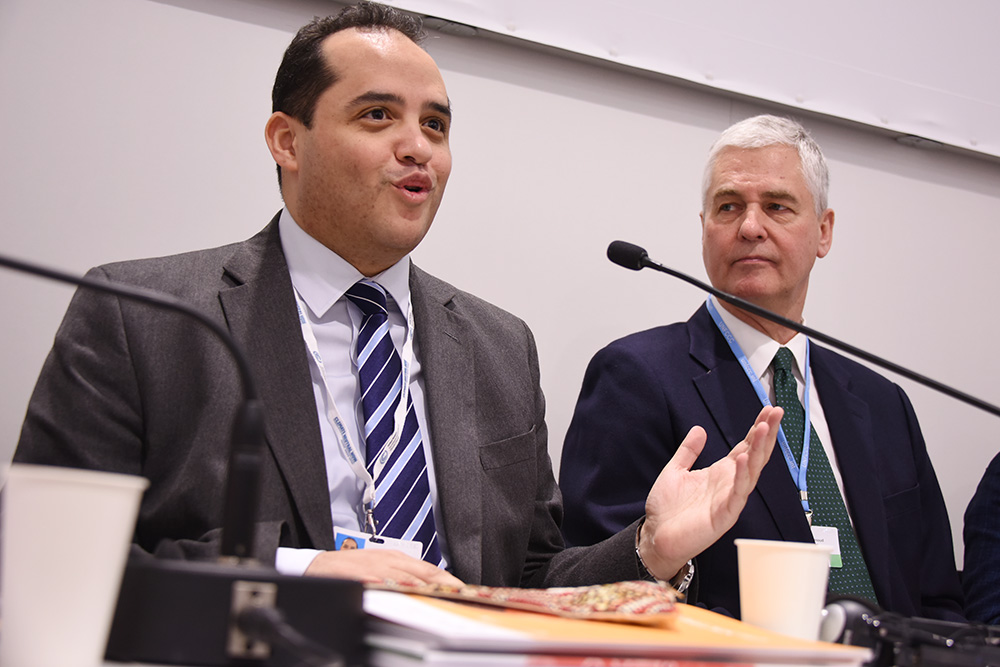
Ahmed Al Qabany, Islamic Development Bank

Veronica Jakarasi, Africa Group of Negotiators

Olatunji Yusuf, Islamic Development Bank
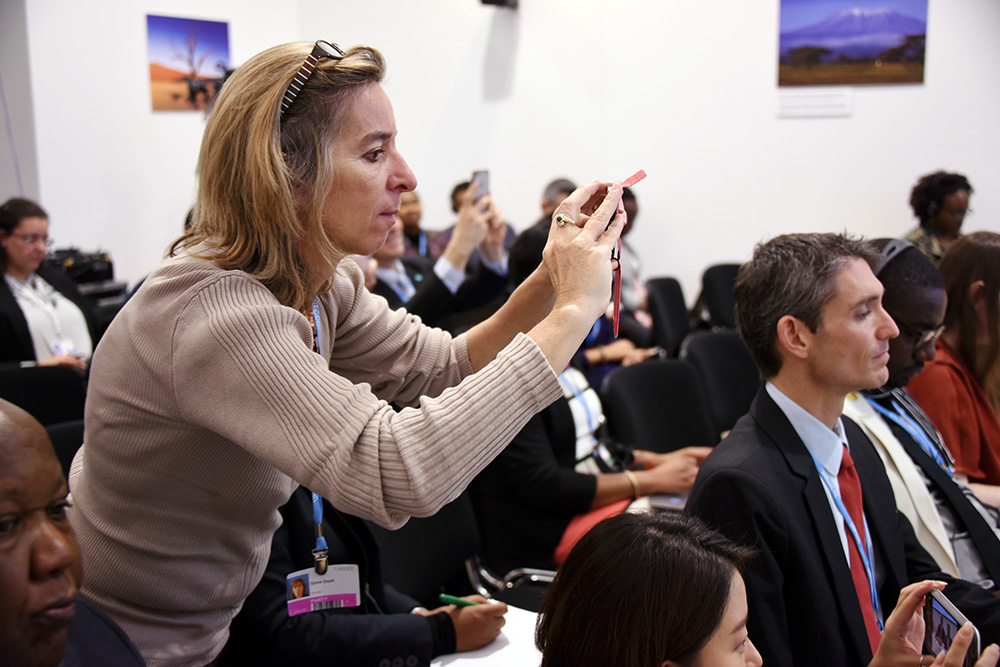
Sylvie Goyet, Secretariat of the Pacific Community
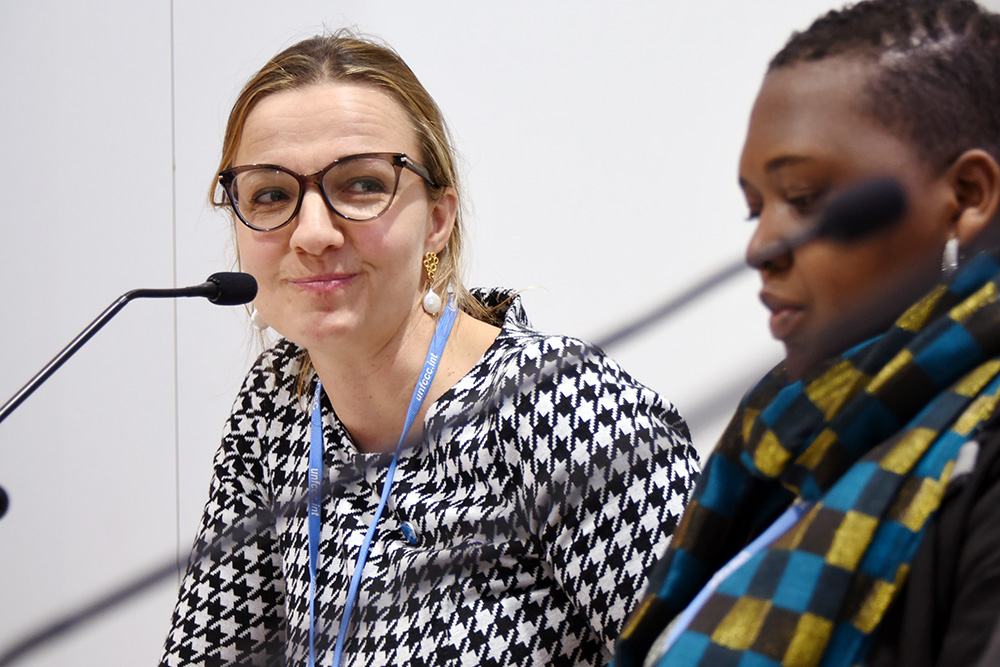
Julia Wolf, FAO
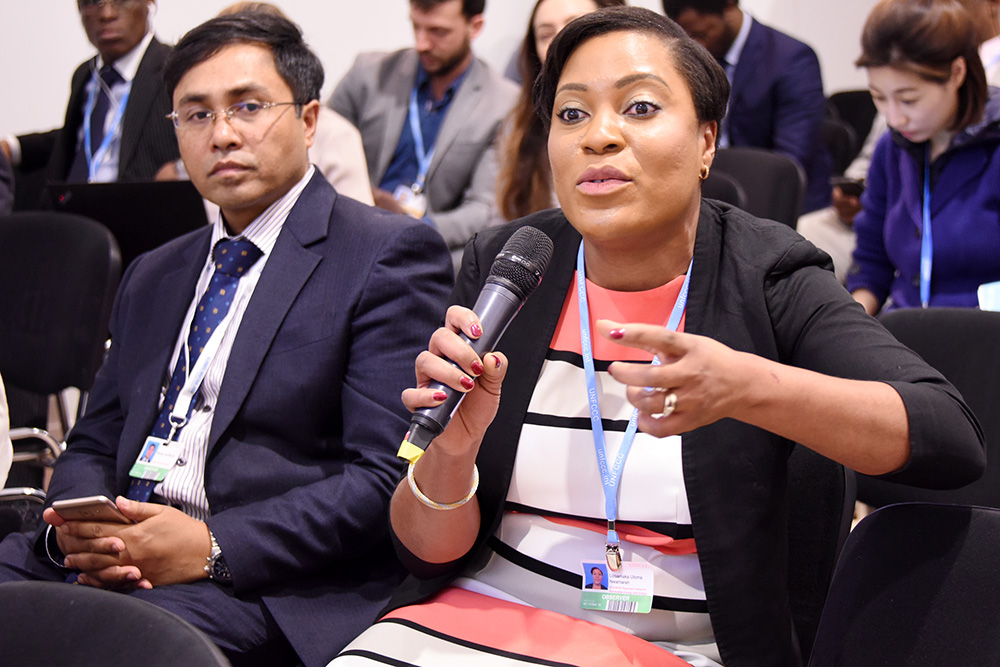
Uzoamaka Uloma Nwamarah, Economic Community of West African States
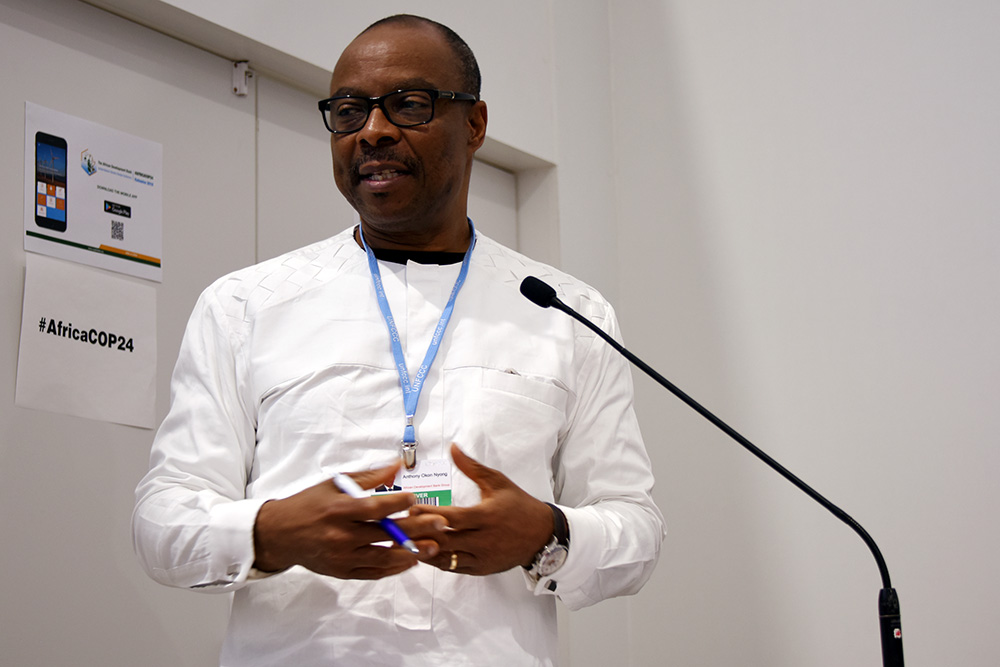
Anthony Okon Nyong, AfDB
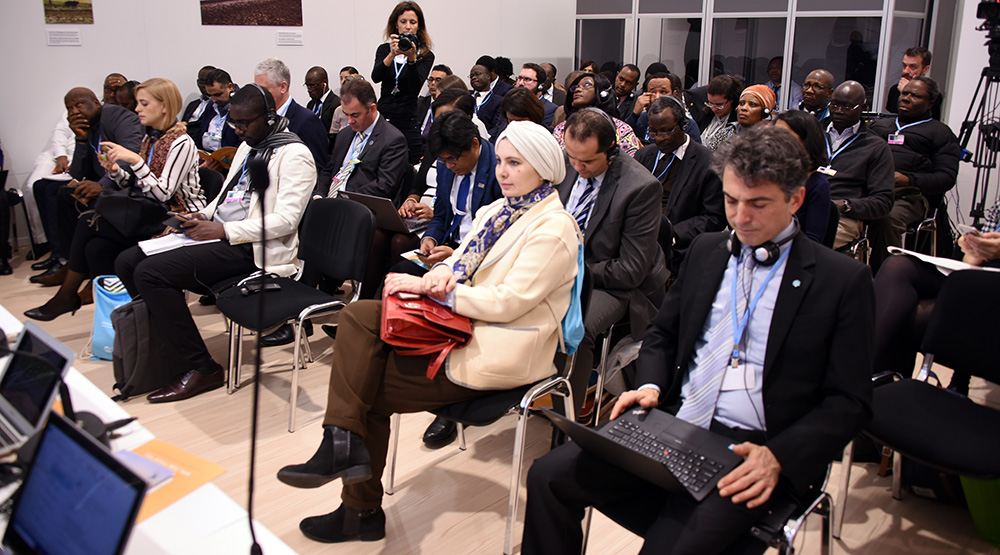
Participants during the event